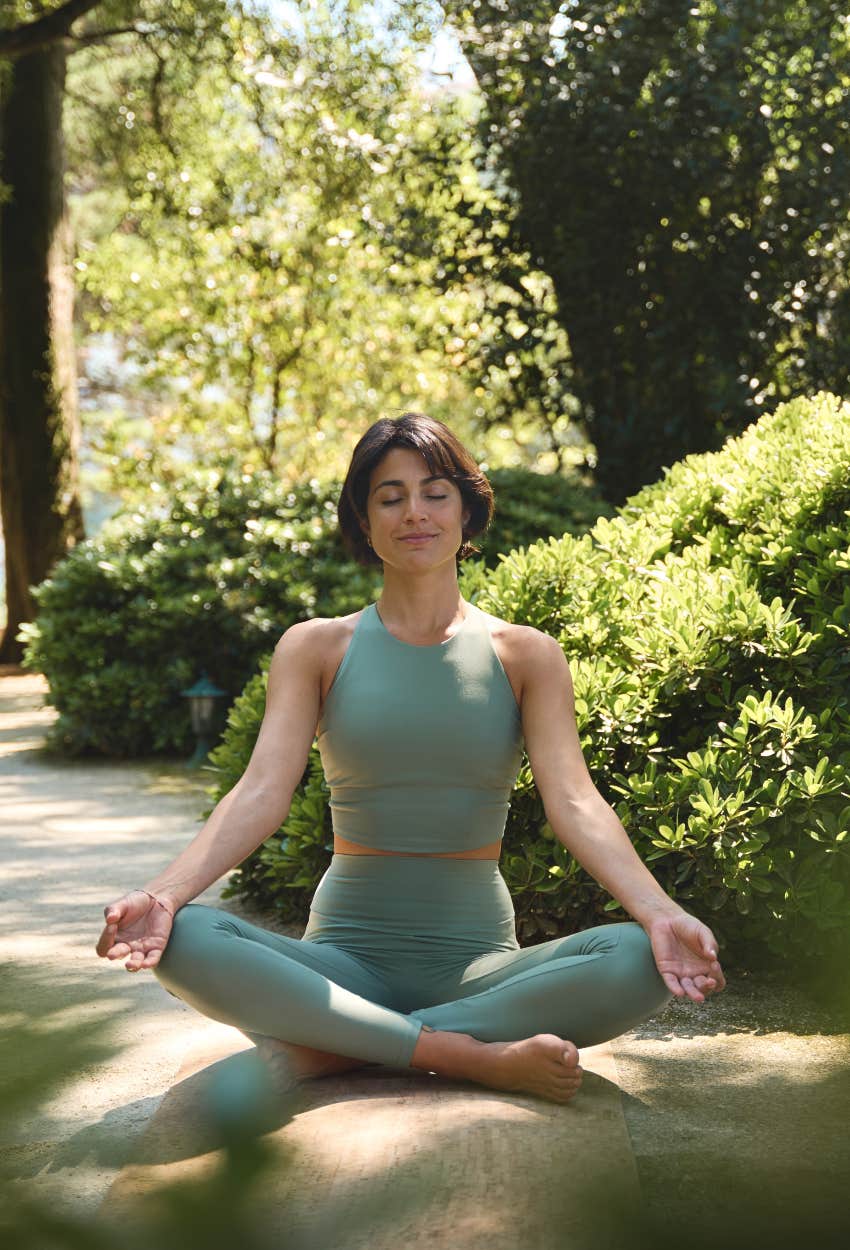The Single Most Important Life Skill The Happiest People You Know Have Mastered
Solitude is a superpower.
 Prostock-studio | Shutterstock
Prostock-studio | Shutterstock In difficult times like ours, it's easy to feel that happiness has never been more elusive — especially given how strongly happiness tends to be tied to money, which most of us don't have much of these days!
However, one spiritual practitioner online claimed that happiness actually has nothing to do with money but rather one simple skill that many of us have been taught to avoid.
The Qigong expert said solitude is the most important life skill that leads to happiness.
Joe Moody is a practitioner and teacher of Qigong, a system of body movements and breathing techniques for physical and mental health, as well as spiritual development. It's similar to the more common tai chi, but less structured and more focused on awareness than physical form.
The aspect of awareness is where Moody's advice for happiness comes in. In a recent TikTok, he said "The most important skill nobody taught you" is simply solitude. "How to be happy alone. How to sit in a room quietly, alone, at peace. How to take a walk alone in nature. Nothing else. No one else."
 Olena Yakobchuk | Shutterstock
Olena Yakobchuk | Shutterstock
Moody said that most of the difficulties of life can be tied to a lack of solitude and hence a lack of inner calm.
"People don't launch wars unless they're envious, restless, and paranoid inside," Moody went on to say. "You're not like that if you can be happy alone, quietly."
It's important to note that solitude and loneliness are two completely different things that we often tend to conflate with each other, especially because societal and cultural norms tell us being alone is to be avoided at all costs. But they're distinct — loneliness is about isolation. Solitude, rather, is about calmness.
Moody urged people to take solitary walks while noticing whatever is around them — a river running by or the leaves rustling in the trees. In the calm and quiet of that solitude, "the world is your oyster. All these things that get other people down, all these hangups, don't really matter," Moody said. "You're just chill with things as they are. Because you can be quiet, alone, happy."
 insta_photos | Shutterstock
insta_photos | Shutterstock
I have experienced this myself as an avid hiker. I've nearly always hiked alone, and have always found it distinctly calming and rejuvenating in a way I find difficult to explain.
Last fall, for the first time, I took a hiking trip with a friend, and it was almost jarring how different it was. Not in a bad way — it was great to share the experience with someone. But the loss of solitude gave it a different impact. It was more fun and exhilarating than it was relaxing or reinvigorating.
Psychologists say all human beings require solitude for mental health.
Moody's take isn't just spiritual mumbo-jumbo — all humans need some degree of solitude. How much is largely dependent on how introverted or extroverted you are, but studies show that time alone — no partners, no friends, no kids, and, crucially, no screens — helps your nervous system move into a "low-arousal state" that helps you feel calm and content.
A "low-arousal state" can be incredibly difficult to find these days — the way our lives are basically built around digital technology pretty much assures that even in the best of times. But we also tend to reflexively avoid it due to our ingrained discomfort with silence, and especially our own thoughts.
It does take a bit of practice, but if racing thoughts are an issue, mindfulness and relaxation techniques — whether Qigong, meditation or just breathing exercises — can help with that problem if you take the time to work up that mental muscle.
As for what to do with your alone time, experts say it can be as simple as just reading a book or watching the birds in the backyard. Hiking, journaling, and meditating count, too. If you do something with your solitude that inspires awe — say, hiking through a canyon — the positive impacts are magnified.
Whatever form you choose, studies also show the benefits are myriad, from lessening depression and anxiety to boosting confidence and even aiding in figuring out your life's problems. So perhaps schedule some alone time this weekend. It might be just what you need to get a break from the harder parts of life.
John Sundholm is a writer, editor, and video personality with 20 years of experience in media and entertainment. He covers culture, mental health, and human interest topics.

